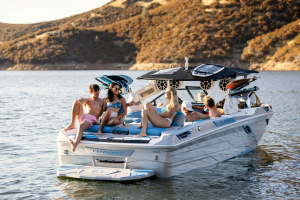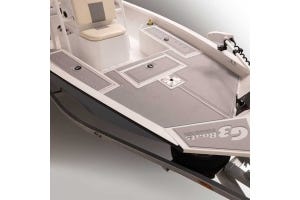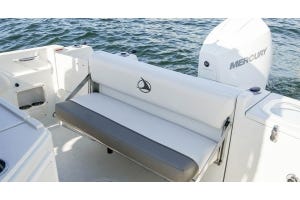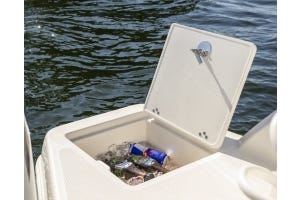Boating in Bad Weather


Summer! It's finally time for long, sunny days, warm weather - and storms, which can cause more damage than just wet clothes and dampened spirits. Strong winds can whip up waves to dangerous heights, and lightning can be lethal.
Check the forecast. Yes, this one is obvious, but it bears repeating. Check the weather forecast for the place you'll be boating. If you have a smartphone, take it with you and use your favorite weather app or website to monitor radar.
Keep a weather eye. Most thunderstorms strike between noon and evening. Learn to recognize the different types of clouds to know if it's time to head for harbor. Fluffy clouds with "dirty" bottoms (cumulus) are nothing to worry about, but a massive, very tall cloud with a flat "anvil head" on top (cumulonimbus) is one to run from.


Take a radio. Whether you have an onboard stereo with a radio or a battery-powered or crank-powered emergency radio, tune in for weather updates if it looks like conditions are changing.
Wear it! A properly fitting life jacket can, quite literally, make the difference between life and death. If the waves turn rough, put on your PFD just in case you fall overboard.
Slow down. When the water gets rough, reduce your speed. Turn on your navigation lights to increase your visibility to other boats.
Run for it. If you can hear thunder, the storm is close enough for lightning to be a threat to you; lightning can strike 10 to 15 miles away from an actual storm. If you're in an open boat like a bass boat or runabout and hear thunder, head back to the dock (or a dock, even if it's not home) and find shelter.
Hunker down. If you're in a larger boat with a cabin and can't get back to shore before the storm hits, stay inside until it passes. If you're at the helm, point the bow into the waves at a 45-degree angle so the bow can slice across the swells instead of being driven under. If there's lightning, unplug electronics so they don't get fried by a chance lightning strike, and don't use your boat's VHF radio unless it's an emergency (wireless handsets are safe to use). Some boaters steer their boat with a wooden spoon, keeping the other hand in a pocket, to avoid touching the metal wheel. Rubber gloves, the kind used by electricians, will also protect you from shock.
Great Lakes bass fisherman Benjamin Novak shares his advice for rough water in this video.






